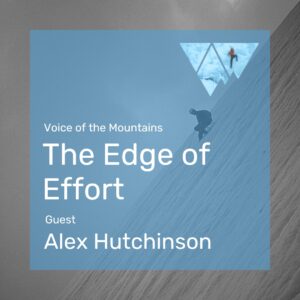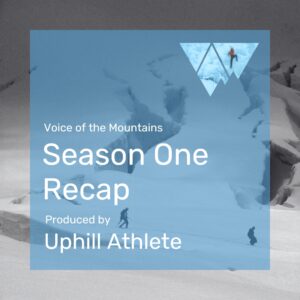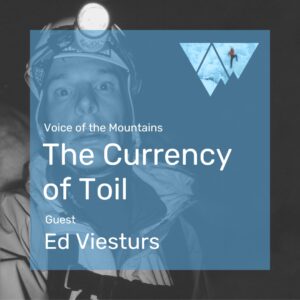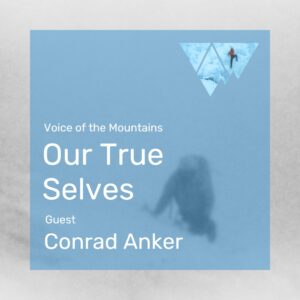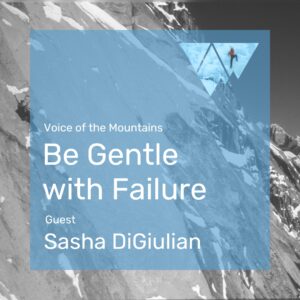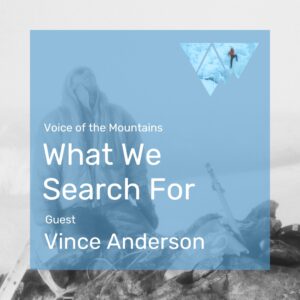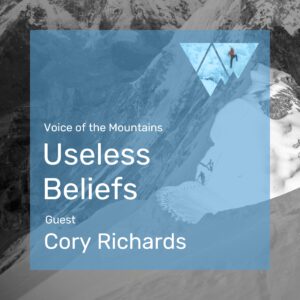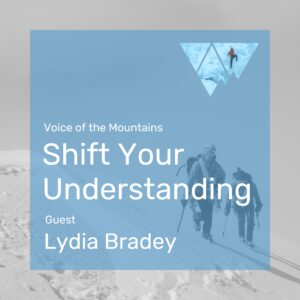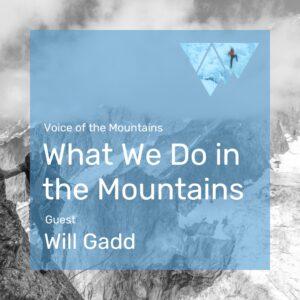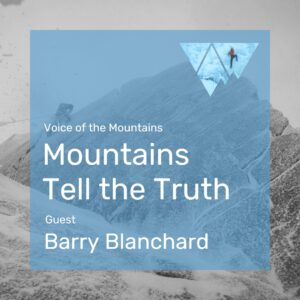Essay: The Measure of Permission
By Steve House
On International Women’s Day, the world often speaks in the language of “inclusion”—the opening of doors, the seats offered at the table. But when I talk with Dr. Christine Theodorovics, the conversation shifts to a more ancient, more rigorous standard. It moves away from what we are given and focuses squarely on what we command.
Christine is a woman who has navigated two of the world’s most demanding landscapes: the C-suite of the insurance industry and the high peaks of the Alps. She hasn’t done this by waiting for the world to grant her space. She has done it by living out the philosophy of the Viennese alpinist Paul Preuß:
“Das Können ist des Dürfens Maß”—Ability is the measure of permission.
In the climbing world, this is a radical statement of ethics. It suggests that the mountain doesn’t give you permission to be there; your skill does. In the corporate world, it is an even sharper tool. It cuts through the noise of titles and “diversity targets” to reveal the only thing that actually holds a team together when the weather turns: The earned authority of demonstrated competence.
The Huayna Potosí Reckoning
The foundation of Christine’s “permission” wasn’t built on a summit, but in a failure. As a young woman in La Paz, she attempted Huayna Potosí without acclimatization and a “youthful delusion” that will and ambition were enough to climb a six-thousand-meter peak.
She was wrong. The altitude sickness that drove her back was a brutal, physical reminder that you cannot negotiate with reality. You are only “allowed” to be at 6,000 meters if you have taken the thousands of small, invisible steps required to survive there.
That failure taught her that the “Total Now”, that state of complete presence, is only available to those who have done the work to earn their permission. While leading insurance companies across Europe, she methodically ticked off all 48 Swiss four-thousanders. She didn’t do it for the trophy; she did it to build a reservoir of Können (ability) that no one could question.
Breaking the Static Frame
Christine’s doctoral research into expedition leadership confirmed that the era of the “General”, the leader who leads by decree rather than deed, is dead. Modern expeditions, like modern companies, require Referent Power: authority that grows from authenticity and a shared history of struggle.
However, as a female CEO, Christine is clear-eyed about the structural friction women face in gaining this referent power. She understands that, in the financial world as in the mountains, a woman often has to be 20% better just to be seen as equal.
This is why her advocacy for quotas is so fascinating. For Christine, a quota is not a “gift” of permission. It is a structural reset. It is a tool to break a static, self-perpetuating system in which men hire only people who look like them. By enforcing a “30% threshold,” she isn’t lowering the bar; she is clearing the path so that the women who already have the ability can finally exercise their earned ability and permission to lead.
The Non-Whining Path
Christine also taught me about Sisu. Sisu is a Finnish term for the stoic realization that, on a mountain, as in a merger, as in life, the option to stop is an illusion. You cannot step off the ridge and take a shower. You have to move through.
This “non-whining” attitude is the ultimate measure of permission. It is the refusal to dramatize risk or succumb to the “summit politics” of conflicting egos. It is a clarity that comes from knowing exactly where your edge lies because you have lived experience of that edge.
What Remains
If we look at Christine’s life, from the child on the Rax mountains of Austria to the CEO navigating the complexities leading a huge institution, the through-line isn’t ambition. It is curiosity tempered by discipline. On this International Women’s Day, Christine’s story offers us a new definition of leadership. It tells us that the summit is not something you are “allowed” to reach by a board of directors or a mountain guide. The summit is a vantage point you earn through a million small, disciplined, additive steps.
When you honor the architecture of the frame, when you ensure your ability always matches your ambition, you no longer need to ask for permission. You simply are the leader the moment requires.
LISTEN TO THE EPISODE:
Exploring the poetic soul of the mountains.
Voice of the Mountains explores the mental and emotional adventures found in discovering who we are and what we’re capable of. Here we engage in self-reflection and humility, and embrace the beauty and struggle of the alpine experience equally.
Read More
Season Two
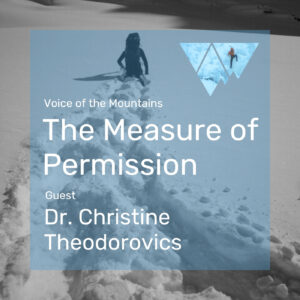
Essay: The Measure of Permission
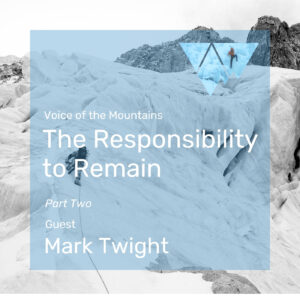
Essay: The Responsibility to Remain
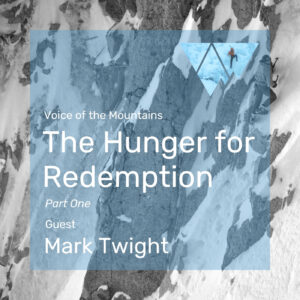
Essay: The Hunger for Redemption
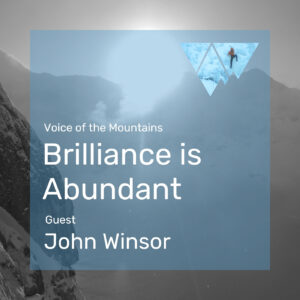
Essay: Brilliance is Abundant
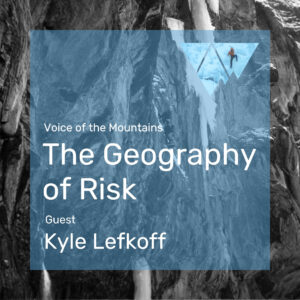
Essay: The Geography of Risk
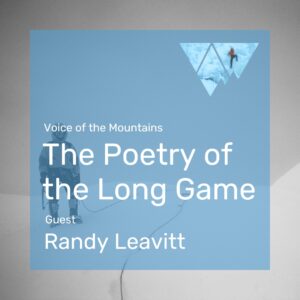
Essay: The Poetry of the Long Game
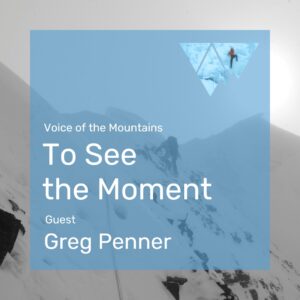
Essay: To See the Moment
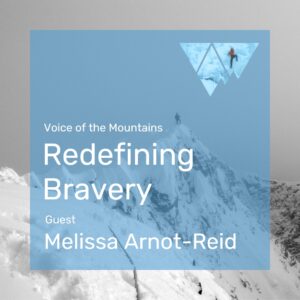
Essay: Redefining Bravery
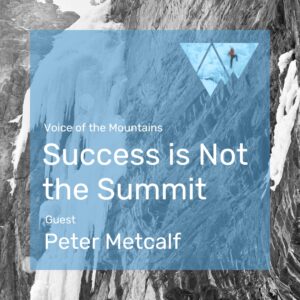
Essay: Success is Not the Summit
